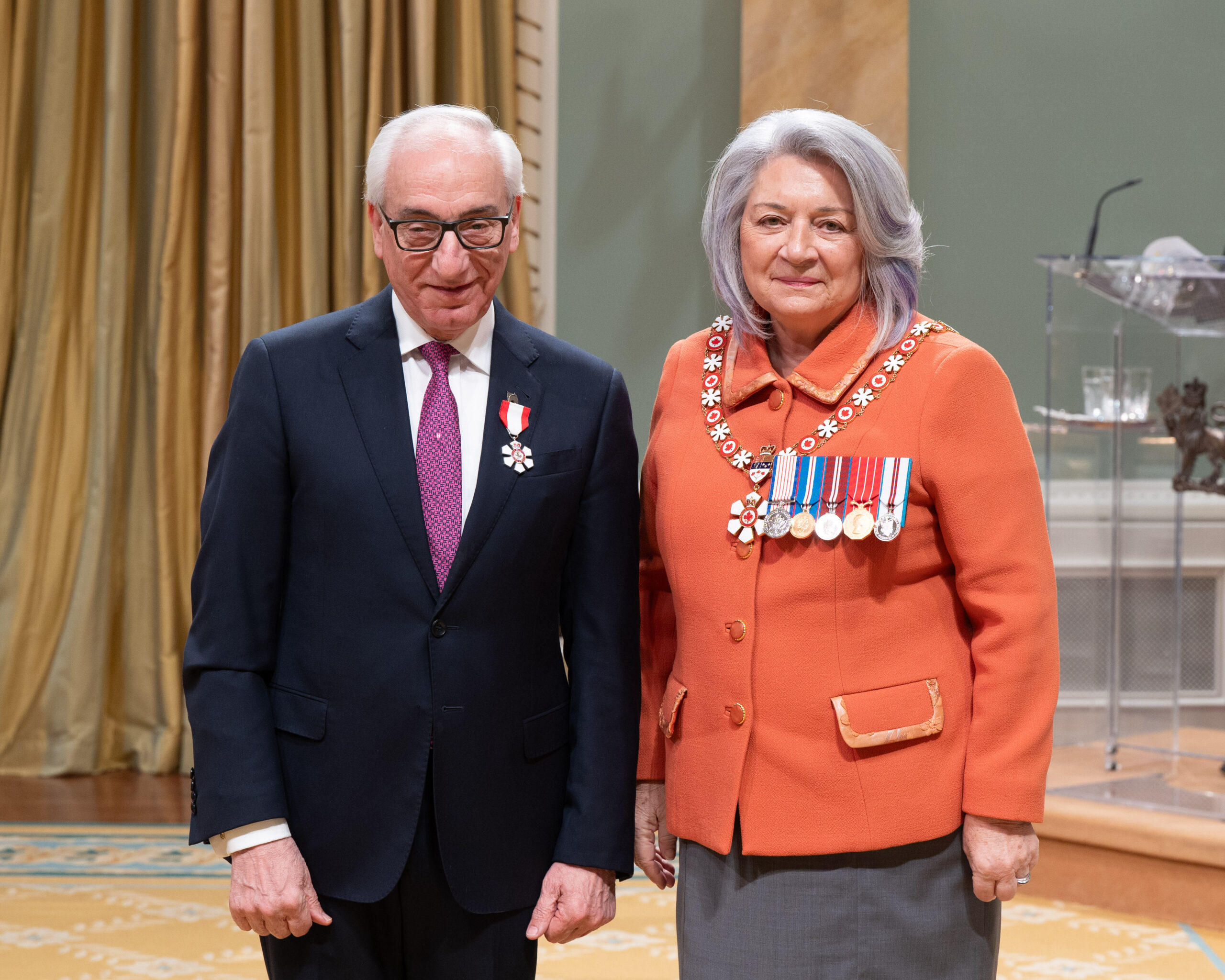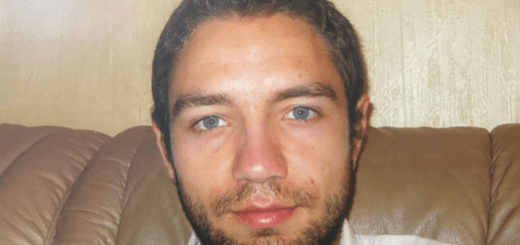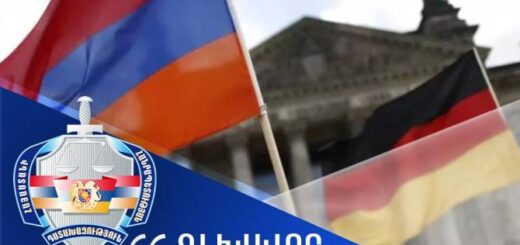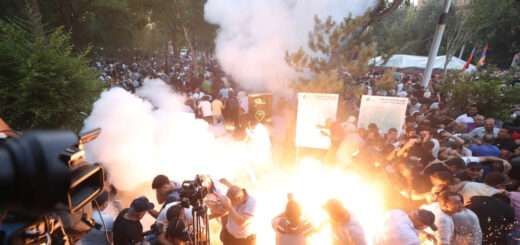| When asked about what prompted him to co-found the Zoryan Institute, Mr. Sarkissian cited two pivotal incidents which had impacted and inspired him in his endeavour. The first incident was a personal story about a great humanitarian, Haji Khalil, a pious Muslim Turk from Urfa, Türkiye, who saved the lives of Sarkissian’s grandmother and her children; while the second, was the tragic fate of the 11 members of one family who were all killed in the 1930s in Germany simply for being Jewish. He finished by dedicating the recognition and his investiture into the Order of Canada to the memory of this great Turkish humanitarian and those 11 family members.
Mr. Sarkissian’s life is marked by his own experience growing up with parents who survived the Armenian genocide. His personal story tells of a Haji Khalil, his maternal grandfather’s Turkish business partner, who had promised to take care of his grandfather’s family in case of any misfortune. When Mr. Sarkissian’s grandfather was subsequently hanged by the Ottoman Turkish authorities and the deportations of the Armenians from their ancestral homeland began, Haji Khalil kept his promise by hiding Greg Sarkissian’s pregnant grandmother, her sister and their children in the upper story of his house for 8 months. The logistics involved were extremely burdensome: there were seven people to hide, food for seven extra mouths to be purchased, prepared, and carried up undetected nightly which had to suffice until the following night. Khalil’s consideration was so deep that he even arranged for his own family to be absent from their house at least once a week, taking them to the mosque, so that Greg’s grandmother, sister, and their children could bathe. Khalil exposed himself to tremendous risk and his situation was precarious, as even his servants were aware of what was transpiring and they could have easily informed the authorities. Had he been caught sheltering Armenians he would certainly have shared the same fate as the Armenians and faced death. Luckily, his household remained loyal and discreet, and therefore, Sarkissian was one of the very few children of his generation and in his neighbourhood to grow up with aunts and uncles, all of whom remembered Haji Khalil, the righteous Turk. The memory of Khalil and his sacrifice, contrasting with the horrors of the genocide perpetrated by Ottoman Turkey, represents an innermost tension which became the motivation of Greg’s life and the fight against the “us-versus-them” mentality.
During his university years, Sarkissian had attended a lecture on “Genocide and Media”, run by Hilel, a Jewish student association on the campus. The lecturer displayed a major U.S. newspaper from the 1930s, with a man’s picture and a front-page article featuring a headline about the man, who had beaten his dog to death, and his community’s uproar for the lack of punishment for such a crime. Several pages later, on page 26, underneath an advertisement about women’s swimwear, was a small caption, in a 1-inch square, about the murder of 11 people belonging to the same Jewish family. This was disturbing for Sarkissian. The newspaper had placed the death of a dog in a more prominent place on the front page, than the life of 11 humans who were reduced to a mere ‘footnote’ and tucked away with the advertisements on page 26. He described how these two moments became pivotal motivations for his co-founding of Zoryan Institute.
Mr. Sarkissian was born to parents who survived the Armenian genocide perpetrated by Ottoman Turkey and were traumatized by the lost heritage of his ancestral homeland. He found profound significance in receiving the Order of Canada from Governor General Mary Simon, herself, an Indigenous Canadian and descendant of genocide survivors. That, together with the Right Honourable Madam Simon’s opening remarks in Inuktitut, was viewed by Sarkissian as a symbol of reconciliation between Canada’s Indigenous people and its settlers. He then reflected on the closing paragraph of the speech he had given in Yerevan, Armenia in 1995, where he had said: |









